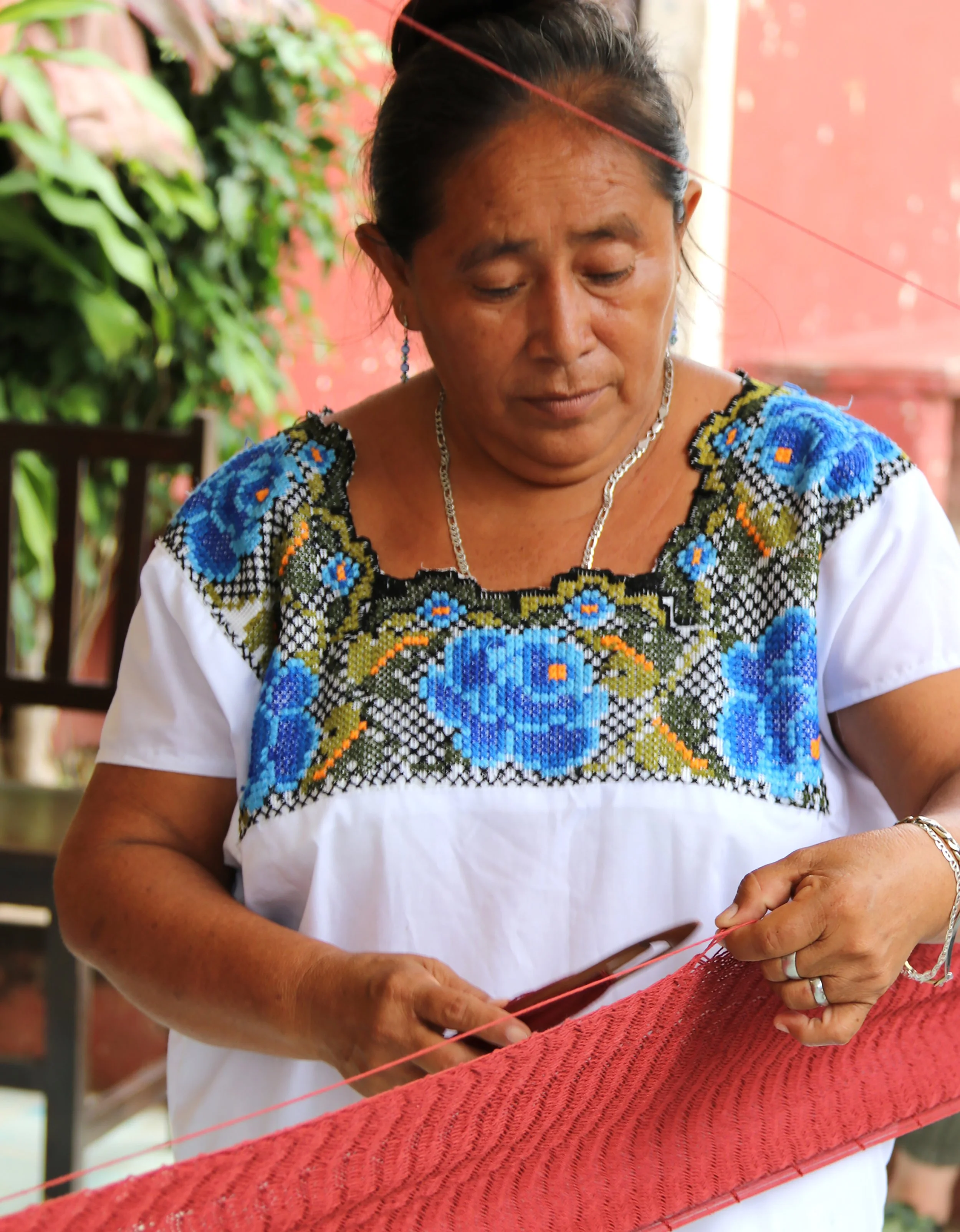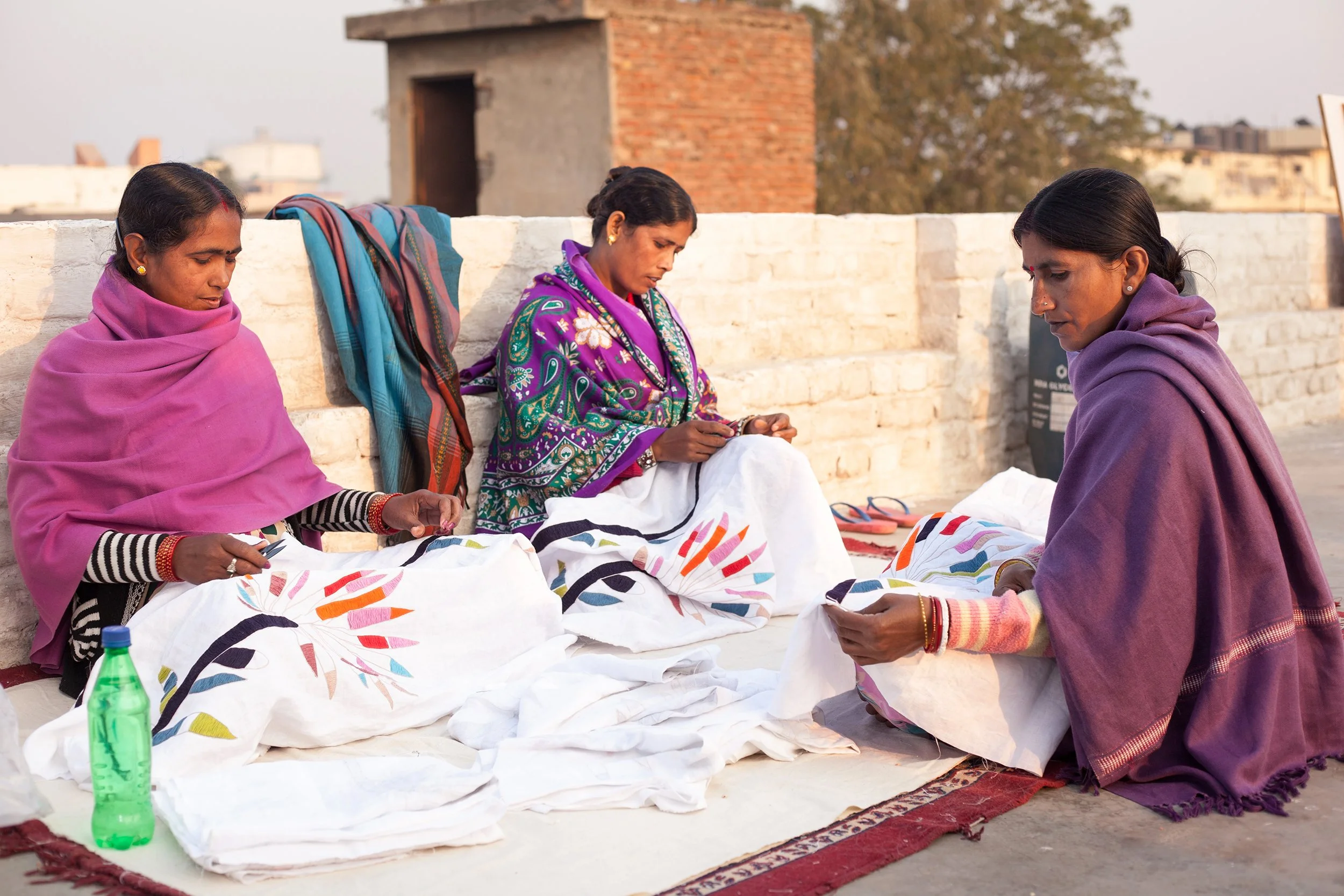Ethical Handcraft
Nest’s Ethical Handcraft Program is revolutionizing the industry by making homework a safe and viable option for workers worldwide. Leveraging International Labor Organization principles, Nest developed the first-ever set of universally applicable standards and verification methodology for decentralized supply chains in the unregulated informal economy.
Home-Based Work
Estimates suggest that around the world 300 million people, the majority of whom are women, are working from their homes or small workshops to support fashion and home decor production.
This work ranges from skilled-based labor like hand-knotting rugs and sewing soles onto shoes, to stringing beaded jewelry, crafting decorative tassels, folding tissue paper, and packing poly bags.
For these workers, handwork offers them an opportunity to earn an income while caring for their families, and limits the need for long and sometimes dangerous travel into cities.
After enrolling in Nest’s Ethical Handcraft program:
57%
increase in the number of businesses that have policies on critical rights and wellbeing for home-based workers
72%
increase in the number of businesses that have a set minimum hiring age; a necessary benchmark to limit child labor
78%
increase in the number of businesses that have set environmental protection guidelines for their production
Solutions for the greater good
Launched at the United Nations alongside a committee of founding brands and retailers, the program has reached supply chains on 5 continents.
Today, Nest partners with brands–like Target, West Elm, Pottery Barn, and Patagonia–to implement Ethical Handcraft programming within select supply chains. This provides them with greater insight into their production and enables them to make better-informed sourcing decisions and impactful corporate policies.
Izabela Ersahin, Founder + Designer, Bebemoss
“Participating in Nest’s program was pivotal for my business. The trainings, business tools and templates provided, and especially the Ethical Handcraft certification process significantly enhanced our operations and understanding of sustainable practices. It’s more than a program; it’s a partnership that nurtures success and fosters a community of like-minded entrepreneurs committed to excellence and ethical business.”
Training for Transparency
The Ethical Handcraft program’s training-first model begins with a baseline risk evaluation and provides the enterprise with educational support to ensure that its workshops and production practices comply with the Nest Standards for Homes and Small Workshops.
The program stands apart for its commitment to cultural sensitivity, as well as risk mitigation and remediation approaches to address areas of concern, including: Workers’ Rights; Health and Safety; Child Labor, Advocacy, and Protection; Worker Wellbeing; Fair Compensation and Benefits; Business Transparency; and Environmental Care.
Supply Chain Certification
Businesses that reach a certain level of compliance earn Nest’s Ethical Handcraft Seal, a certification symbol to acknowledge their profound effort in establishing strong compliance systems and ability to demonstrate that these ethical practices are directly impacting workers.
Nest’s Ethical Handcraft Seal
Artisan enterprises and handcraft supply chains assessed and certified through the Ethical Handcraft program may qualify to bear Nest’s Ethical Handcraft Seal, a consumer-facing mark that signifies a product has been ethically handcrafted in accordance with the Nest Standards.
Today, the Ethical Handcraft Seal can be found on products, ranging from baskets to quilts and apparel, at major retailers like Target and West Elm.







